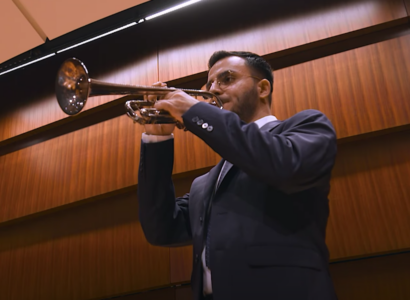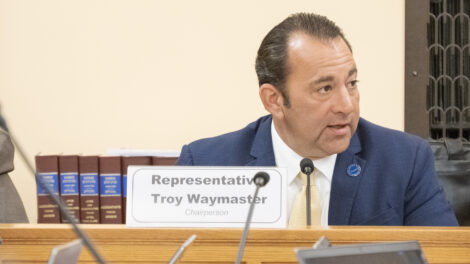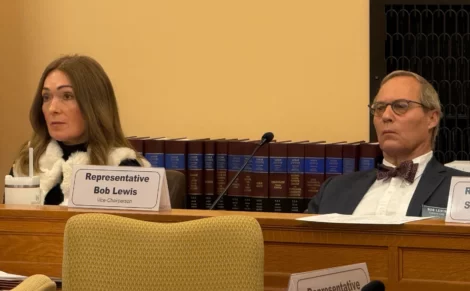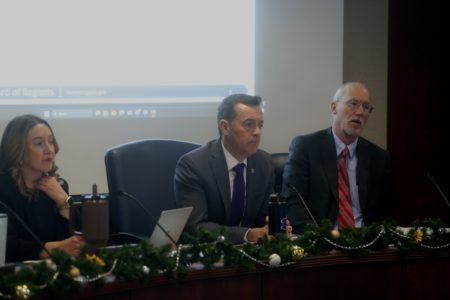KU group creating videos to raise awareness about sexual assault and harassment on campus

In this photo students from Kansas University and Haskell are improvising scenes to become part of short videos to educate KU students on sexual harassment and sexual assault. The students are part of KU's Interactive Theatre Troupe, a group of writers, actors and directors who use improvisation to confront difficult topics.
It’s a widely cited but still frightening statistic: Nearly one out of five women in college will experience sexual assault.
That number, along with high-profile cases of assault on campuses, has forced universities around the country to confront an issue that is still difficult for many to talk about.
At Kansas University, students have helped lead the charge to educate their peers on sexual assault, relationship violence, informed consent and related issues.
A group working with KU’s Office of Institutional Opportunity and Access, or IOA, is currently producing short videos for students with the goal of putting the topic front and center.
They hope the videos will get a broad audience among students beginning next school year. KU student body vice president Emma Halling, who sits on the sexual assault training subcommittee of KU’s Title IX Roundtable, said the videos are meant to get information to students quickly, in about 30 seconds, before they can raise their intellectual defenses.
“By the time a 30-second video is over, you’ve gotten the information, but you haven’t closed yourself to it either,” Halling said.
Pressing the air out
The group wanted students deeply involved in the production of the videos, Halling said. So they turned to the film and media studies department as well as to KU’s Interactive Theatre Troupe, a group of actors, writers and directors who use improvisation and other techniques to tackle difficult issues.
Nicole Hodges Persley, a KU assistant professor of theater who directs the troupe, said the team members began by doing research and considering their own experiences to generate ideas. From there they began improvising scenarios that eventually became short scripts.
The project came with several challenges. One was brevity. “We really had to press the air out of things,” Hodges Persley said. “It was super tough. We would work through the broad sketch and ask, ‘Where’s the hot moment?’ I think that’s where improv helped us so much.”
Their subject and audience also presented challenges. College students are often media-savvy and media-saturated. “I think the tough part is trying to balance both sides of the coin,” said Gina Sandi, a doctoral student in theater and a teaching assistant for the troupe.
“These are very complex issues that can’t always be seen from just a feminine perspective or a masculine perspective,” Sandi said. “We really tried to avoid preaching.”
At the heart of their subject matter was violence — intimate violence. The troupe made a conscious choice not to show the violence itself, and so they had to find a way to communicate its importance without showing it.
They opted for scenes where violence had already taken place or might occur. In one sketch, two students witness a heated fight between a man and woman outside a dorm that the bystanders fear could escalate. It’s a situation that came from one of the actors’ lives, and one that calls for a bystander to make a decision to help.
Finding an audience
The hope is that the videos will be ready for the fall semester’s Hawk Week, an annual event meant to help students transition to the university and campus. The videos could be shown at various events throughout the week and streamed in locations such as the Kansas Union, in addition to being posted online.
The videos still have to be filmed and vetted by KU’s IOA office before that can happen. The office provides training on sexual harassment and sexual assault and has been developing new ways of reaching students on the topics. On Wednesday, for example, IOA will sponsor KU’s first “March for a Voice” on campus to encourage reporting of sexual assault.
IOA executive director Jane McQueeny said the video project has been a collaborative effort between her office and students. “I’m supportive of any and all efforts that engage our students on this very important issue,” she said.
“These are great students with wonderful, really smart ideas,” she said. “I can guarantee, if you look across a bunch of college campuses, you’re not going to find something like this.”







